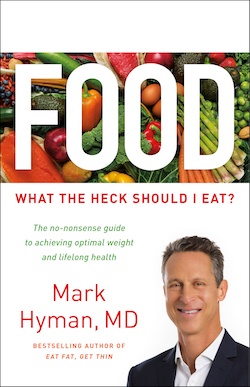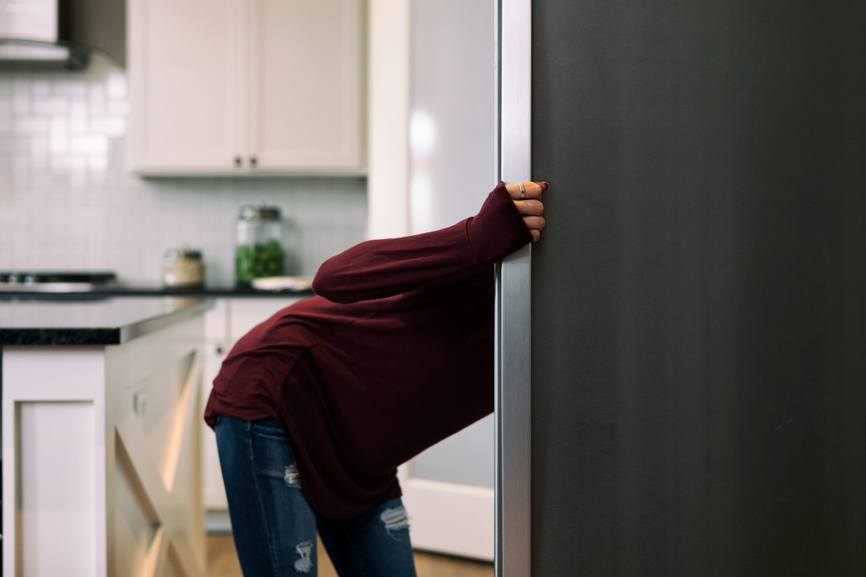Why It’s Important to Do a Detox Before Starting a New Diet

Whether you're attempting to get to the root of annoying gut probs, want to try the eating plan your yoga teacher swears gives her more energy, or want to see for yourself whether keto lives up to the hype, there are all sorts of reasons to revamp your diet. But before jumping into a completely new way of eating, according to The UltraWellness Center founder and director Mark Hyman, MD (one of the most in-demand doctors in the biz), it's important to do a little detoxing first.
"When you hear the word 'detox,' you might think drug detox or alcohol detox or wheatgrass enemas. That’s not what I'm talking about," the best-selling author, whose new book, Food: What the Heck Should I Eat? hits shelves February 27. So what does he mean?
Here, Dr. Hyman details exactly why a detox is important—and how to do it.

The case for detoxing
First things first. What exactly does detoxing mean? "It's how your body gets rid of waste," Dr. Hyman explains. "If waste builds up, we get sick. The key becomes figuring out how to enhance our body’s capacity to detoxify and get rid of waste while minimizing our exposure to toxins."
Dr. Hyman explains that toxic chemicals—from food, air, the environment—are absorbed by the body every day. "According to the nonprofit organization Environmental Working Group, the average newborn baby has 287 known toxins in his or her umbilical cord blood," Dr. Hyman says. This means the mother is exposed to at least this many toxins on a daily basis, "so imagine how many you have been exposed to in your life," he says.

{{post.sponsorText}}
"The simple truth is that we are living in a sea of toxins and it is destroying our bodies and brains," says Dr. Hyman, not one to sugarcoat anything—literally and figuratively speaking.
"The simple truth is that we are living in a sea of toxins and it is destroying our bodies and brains."
For a healthy person, the body's detoxing system is like a well-oiled machine. But if you start having digestive issues, your doctor tells you something is up with your liver, or you feel drained constantly, it means there's a kink in the system. "Also, if you're overweight, [toxic] environmental chemicals like pesticides and plastics are stored in your fat tissue," Dr. Hyman says. "As you lose weight, you need to flush out the toxins that get released from your fat tissue. Otherwise, they can poison your metabolism and impair weight loss."
Even if you aren't overweight, Dr. Hyman points out that toxicity has been linked to nearly every disease, including dementia, heart disease, food allergies, and digestive issues.

How to detox
Now that you know why detoxing is important, the next question is: How do you do it? Fortunately, Dr. Hyman's advice doesn't involve an all-liquid diet or skipping meals. (His new book offers a full detoxing plan, plus recipes.)
First: Identify what toxins you're putting into your body. It may sound like a no-brainer, but you may be unintentionally exposing yourself to agents harming your body. Dr. Hyman's advice is to eliminate sugar, grains, processed meat and high-mercury fish, dairy (except for grass-fed ghee and clarified butter), and anything with preservatives for 10 days. "Just see how your body feels," he says.
Instead, fill up on real, whole foods. "The foundation of your diet should be high-quality protein, fats, and non-starchy vegetables that don’t spike blood sugar or insulin," Dr. Hyman says. "These are the types of foods that detoxify your body but also reignite your metabolism, calm body-wide inflammation, crush cravings, and fill you up."
Another way to detox: Get moving. While most people don't associate exercise with detoxing, Dr. Hyman says they it's truly an integral part. "This helps your blood and lymphatic circulation do its job," he says. "Also, detoxing your mind is just as important as detoxing your body, and it's something rarely talked about," he says. And we know that working out can boost your happy-making hormones and help quell anxiety.
After 10 days, you'll be ready to move off the detox and slowly start re-introducing the foods you had cut out back into your diet. That way, you can truly notice what agrees with your body—or doesn't. Dr. Hyman's eating plan of choice is the pegan diet—a vegan, Paleo hybrid. Never heard of it? Check back next week for his explainer on what it is and why he recommends it to everyone.
Speaking of detoxing, here's how going on a juice cleanse affects your gut. Plus, should you add cannabis to your next cleanse?
Loading More Posts...